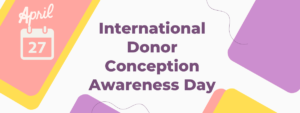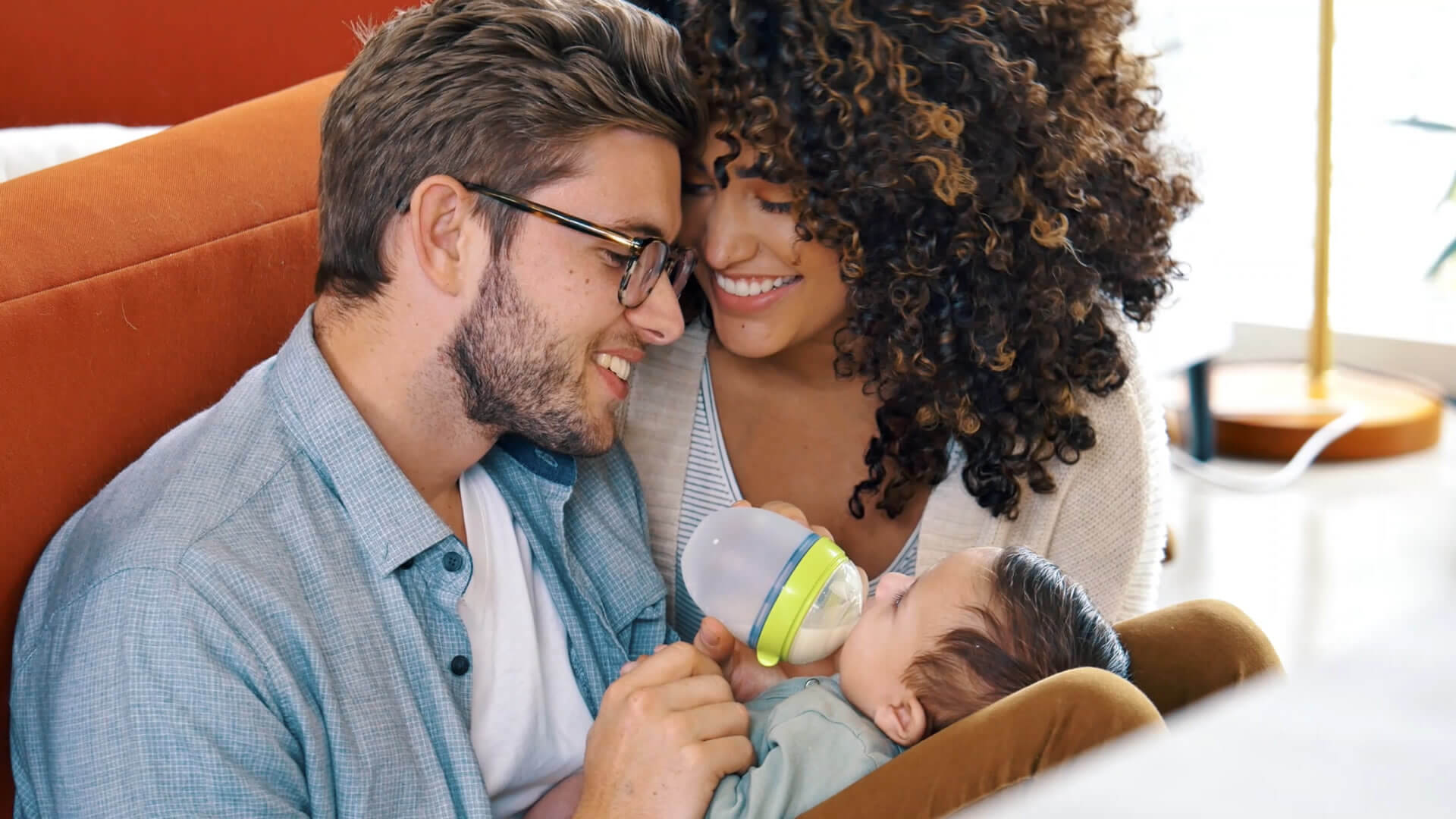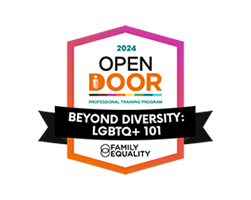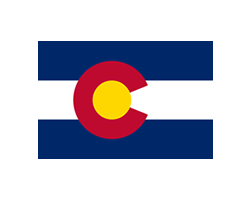 Today (April 27th) marks International Donor Conception Awareness Day. It’s a day dedicated to raising awareness about families created through donor conception and, most importantly, the lived experiences of donor-conceived people (DCP). In recognition of this important day, Egg Donor & Surrogate Solutions is honored to partner with the U.S. Donor Conceived Council (USDCC) to share how the organization is working to ensure that DCPs’ voices are heard and to advance changes across the industry.
The USDCC is a volunteer-led nonprofit organization with a mission to increase awareness of the needs, interests, and challenges of donor-conceived people and advance change that promotes and protects their health, welfare, and human rights.
Groundbreaking legislation
Established in late 2021, the USDCC is already making a significant impact on the future of DCP. Last year, the organization spearheaded a bill in Colorado known as the “Donor-Conceived Persons and Families of Donor-Conceived Persons Protection Act,” which was signed into law by Governor Jared Polis on May 31, 2022. The law is the first of its kind in the U.S. and abolishes anonymous egg and sperm donation, giving DCPs born in 2025 and after the right to learn the donor’s identity when they are 18. It also establishes a global limit for the number of families that can use gametes from a single donor.
Melissa Bornico, the USDCC’s vice president of development and director of social media, says that one of the organization’s priorities for 2023 is focusing on how the Colorado law is implemented. “Getting the law passed was the first step to creating change; now, we’re focused on ensuring that it’s implemented responsibly,” she explains.
When she was 21, Melissa’s parents told her and her brother that they were conceived with the help of an egg donor. Overall, Melissa feels she had a good experience in learning that she is donor-conceived, which is not the case for many DCPs.
“There may be things that could have been handled better, but I feel pretty ok with it all,” she says. “I learned about being a donor-conceived from my parents, not on my own through a DNA test. And they were remorseful that they didn’t tell my brother and me sooner.”
She adds, “Being in the privileged position of having my experience go as smoothly as it did, I feel a responsibility to advocate for other DCPs, who did not have a positive experience,” she explains.
Melissa says that the USDCC hopes to pass additional legislation like the Colorado law in other states. The organization is also focused on creating educational materials for everyone involved in the donor conception process – from donors to intended parents to fertility clinics and agencies.
Advocacy survey results
Another major project the USDCC took on last year was surveying donors, recipient parents, and DCPs about changes to the donor conception industry and practices they would like to see. Of the 483 people who participated in the survey, 52% were DCP, 35% were parents of DCP and 19% were egg and sperm donors. Five top priorities were identified and consistent across all three groups.
1. Donor Identity Release: DCP should have access to the donor’s identity before they turn 18. Many DCPs believe that identity release should occur at birth.
2. Family Unit Limits: No more than 10 families worldwide should be able to use gametes from a single donor.
3. Donor/Sibling Registry: A national registry should be created to enable DCP to find their donor siblings.
4. Psycho-Educational Counseling: All donors and intended parents should receive educational counseling before moving forward with the donor conception process.
5. Donor Screening/Qualifications: All donors should receive screening for genetic health issues and psychological screening, as well as a criminal background check.
Read more about the advocacy survey results online.
Creating inclusivity
Another important focus for the USDCC is to raise awareness and advocate for groups who are often marginalized by the donor conception industry, specifically the BIPOC and queer communities. For example, some insurance companies will only provide fertility benefits to heterosexual couples, excluding same-sex couples and single parents by choice.
“Homophobia in society at large harms DCP with same-sex parents,” Melissa says. “If a DCP talks about a problem with the industry, some people will take that information and use it against same-sex parents.”
Melissa shares that during policy negotiations for the Colorado bill, the USDCC tried to stay mindful and inclusive of the broader DCP community, seeking input from the queer community and LGBTQIA+ organizations.
“We need to make space for everyone at the table when changes are being discussed,” Melissa says. “It’s important that the industry represents the world we live in, and systemic change can truly benefit and make the industry better for everyone.”
The opportunity to be part of advancing change that makes the world better for all DCPs is what Melissa says she enjoys most about her work with the USDCC. “There’s certainly a lot of work to be done, but I feel really good about where we’re going and really grateful and privileged to be part of this work.” Visit www.usdcc.org to learn more about the USDCC, how you can get involved and to access educational materials for intended/recipient parents. Tune into our interview with USDCC on our podcast
Listen to an episode of our podcast, where we interview recipient mom Laura.
]
Today (April 27th) marks International Donor Conception Awareness Day. It’s a day dedicated to raising awareness about families created through donor conception and, most importantly, the lived experiences of donor-conceived people (DCP). In recognition of this important day, Egg Donor & Surrogate Solutions is honored to partner with the U.S. Donor Conceived Council (USDCC) to share how the organization is working to ensure that DCPs’ voices are heard and to advance changes across the industry.
The USDCC is a volunteer-led nonprofit organization with a mission to increase awareness of the needs, interests, and challenges of donor-conceived people and advance change that promotes and protects their health, welfare, and human rights.
Groundbreaking legislation
Established in late 2021, the USDCC is already making a significant impact on the future of DCP. Last year, the organization spearheaded a bill in Colorado known as the “Donor-Conceived Persons and Families of Donor-Conceived Persons Protection Act,” which was signed into law by Governor Jared Polis on May 31, 2022. The law is the first of its kind in the U.S. and abolishes anonymous egg and sperm donation, giving DCPs born in 2025 and after the right to learn the donor’s identity when they are 18. It also establishes a global limit for the number of families that can use gametes from a single donor.
Melissa Bornico, the USDCC’s vice president of development and director of social media, says that one of the organization’s priorities for 2023 is focusing on how the Colorado law is implemented. “Getting the law passed was the first step to creating change; now, we’re focused on ensuring that it’s implemented responsibly,” she explains.
When she was 21, Melissa’s parents told her and her brother that they were conceived with the help of an egg donor. Overall, Melissa feels she had a good experience in learning that she is donor-conceived, which is not the case for many DCPs.
“There may be things that could have been handled better, but I feel pretty ok with it all,” she says. “I learned about being a donor-conceived from my parents, not on my own through a DNA test. And they were remorseful that they didn’t tell my brother and me sooner.”
She adds, “Being in the privileged position of having my experience go as smoothly as it did, I feel a responsibility to advocate for other DCPs, who did not have a positive experience,” she explains.
Melissa says that the USDCC hopes to pass additional legislation like the Colorado law in other states. The organization is also focused on creating educational materials for everyone involved in the donor conception process – from donors to intended parents to fertility clinics and agencies.
Advocacy survey results
Another major project the USDCC took on last year was surveying donors, recipient parents, and DCPs about changes to the donor conception industry and practices they would like to see. Of the 483 people who participated in the survey, 52% were DCP, 35% were parents of DCP and 19% were egg and sperm donors. Five top priorities were identified and consistent across all three groups.
1. Donor Identity Release: DCP should have access to the donor’s identity before they turn 18. Many DCPs believe that identity release should occur at birth.
2. Family Unit Limits: No more than 10 families worldwide should be able to use gametes from a single donor.
3. Donor/Sibling Registry: A national registry should be created to enable DCP to find their donor siblings.
4. Psycho-Educational Counseling: All donors and intended parents should receive educational counseling before moving forward with the donor conception process.
5. Donor Screening/Qualifications: All donors should receive screening for genetic health issues and psychological screening, as well as a criminal background check.
Read more about the advocacy survey results online.
Creating inclusivity
Another important focus for the USDCC is to raise awareness and advocate for groups who are often marginalized by the donor conception industry, specifically the BIPOC and queer communities. For example, some insurance companies will only provide fertility benefits to heterosexual couples, excluding same-sex couples and single parents by choice.
“Homophobia in society at large harms DCP with same-sex parents,” Melissa says. “If a DCP talks about a problem with the industry, some people will take that information and use it against same-sex parents.”
Melissa shares that during policy negotiations for the Colorado bill, the USDCC tried to stay mindful and inclusive of the broader DCP community, seeking input from the queer community and LGBTQIA+ organizations.
“We need to make space for everyone at the table when changes are being discussed,” Melissa says. “It’s important that the industry represents the world we live in, and systemic change can truly benefit and make the industry better for everyone.”
The opportunity to be part of advancing change that makes the world better for all DCPs is what Melissa says she enjoys most about her work with the USDCC. “There’s certainly a lot of work to be done, but I feel really good about where we’re going and really grateful and privileged to be part of this work.” Visit www.usdcc.org to learn more about the USDCC, how you can get involved and to access educational materials for intended/recipient parents. Tune into our interview with USDCC on our podcast
Listen to an episode of our podcast, where we interview recipient mom Laura.
]

We help Intended Parents Create Happy Families via Egg Donation & Surrogacy with the help of caring Egg Donors & Surrogates.
Donor sibling registry, egg donation process, Egg Donor Solutions, Intended Parents, Why use an agency?, Intended Parent Resources, Intended Parent Webinar, Getting started, Why our agency?, Selecting your donor.






